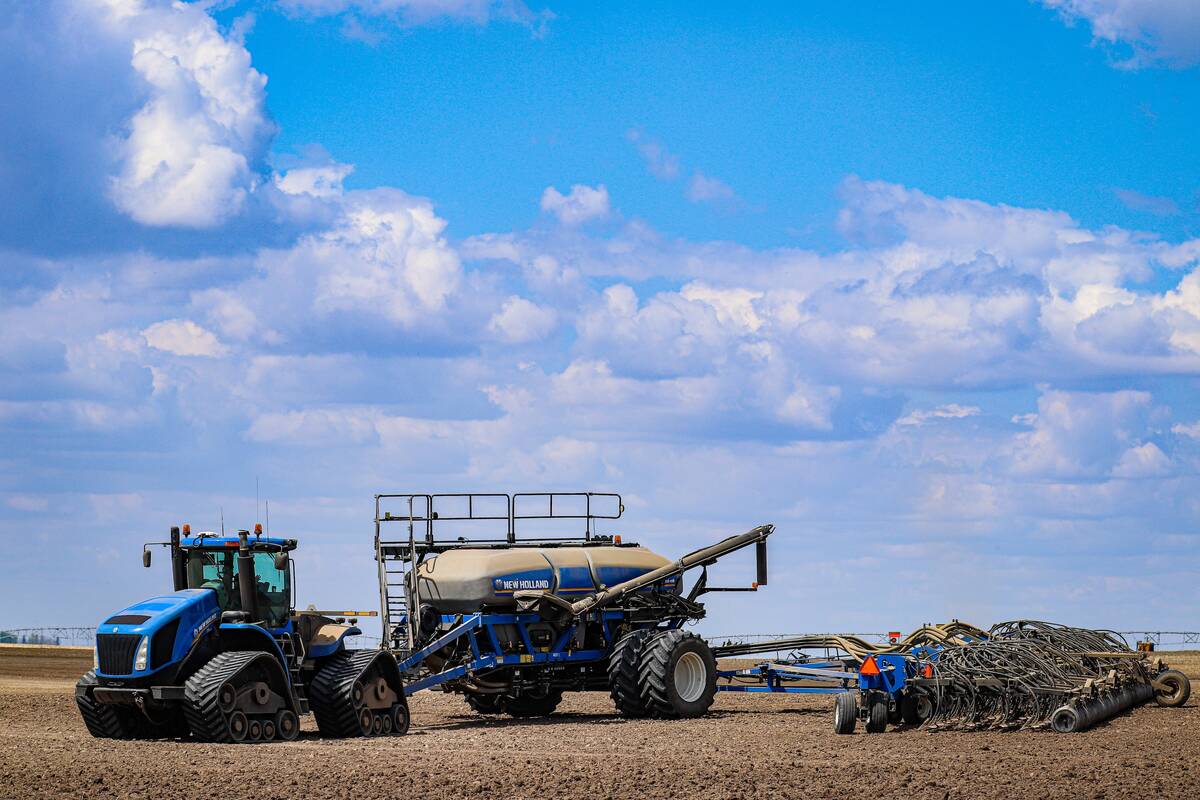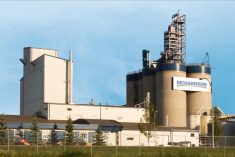The spring tradition of the Regina Bull Sale has ended after 108 years.
The committee in charge of the event cancelled this year’s sale after only 60 bulls were entered. It’s far below the hundreds that used to make the sale a marquee event.
However, consignors who used the Regina sale as a main marketplace have planned a new sale for March 15 in Moose Jaw, Saks..
Canada’s Red, White and Black Bull Sale could become an annual event, depending on how this year goes, said purebred Hereford breeder and organizer Rob O’Connor.
Read Also

NFU says proposed plant breeders’ rights come at farmers’ expense
The National Farmers Union is pushing back against changes to the Plant Breeders’ Rights Act that would narrow the scope of farmers’ right to save seed or propagate crops from cuttings and tubers.
“Dec. 30 was a terrible day for a lot of people,” he said, which was when consignors were told the Regina sale had been cancelled.
However, he said breeders agreed they still needed a place to sell bulls.
“A lot of guys don’t have 30 or 40 bulls to create their own sale,” he said.
“I have 10, a few other guys have four or six or two. We’ve invested a lot of money to keep these animals and try to promote our farms and breeding programs, and to have no place to sell them, well, that couldn’t happen.”
Scott Fettes, the chair of the Regina Bull Sale committee, said the decision wasn’t made lightly.
The committee had planned changes after last year’s event to try to make the economics work. One change was a move into the commercial barn to keep costs in line.
The cost of renting facilities at Evraz Place has always been a concern. The cost structure of the sale was based on hundreds of bulls rather than 60.
However, Fettes said the loss of consignors was the biggest factor. A significant number of dispersal sales have been held over the last few years, and some producers have either decided to sell their animals in other venues or begin their own sales.
“It wasn’t hard in the end when we didn’t have the numbers,” he said of the decision to cancel.
He expects this is the end of the Regina Bull Sale tradition, although it is possible it could be resurrected in the future. There is a small bank account but also bills to clean up, he said.
O’Connor said three new consignors have committed to the new sale, which includes 16 breeders of Hereford, Limousin, Angus and Charolais.
“I took the bull by the horns,” he said about his role in organizing the sale.
Consignors Curtis and Kerry Gaillard are handling social media for the sale. A website, canadaredwhiteblackbullsale.weebly.com, has been established, and limited information posted. There is also a Facebook page.
“We’re just a group of consignors trying to make decisions,” O’Connor said.
A show isn’t planned ahead of the sale, but registered bidders will receive ballots to vote for their favourite bulls and pens of three. O’Connor said voting for the people’s choice awards will help determine sale order.
Consignors are paying an entry fee to help cover the upfront costs. O’Connor’s contact information is on the website for anyone who is interested.
Meanwhile, the Regina Spring Steer and Heifer Show that has run for years at the same time as the bull sale will continue at Evraz Place.
Past organizer Reed Andrew said the show for junior exhibitors has been expanding and gaining popularity.
“We were looking for a little bigger footprint anyway,” he said.
The show will be faced with more costs because it had shared some bills with the bull sale.
Andrew said last year’s addition of show coaches and the ability to add more educational components to the event might make it more attractive to sponsors.
“It will be different, but it will be good,” he said, citing the ability to have more time in the arena and be more flexible with scheduling.
The show will run March 7-9 in the Canada Centre at Evraz Place.

















